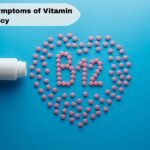Table of Contents
Ensure your kids get enough zinc for optimal cognitive development and overall health. Learn about zinc’s benefits, deficiency risks, and top food sources.
Learn why incorporating sufficient zinc into your children’s diet is crucial for their cognitive development, memory, and overall health. Discover the negative impact of zinc deficiency on young minds and find out what foods and habits to avoid that deplete zinc levels. This guide provides essential insights for parents on nurturing healthier brains and bodies for their kids, including dietary recommendations and tips on steering clear of common zinc blockers like phytic acid found in cereals and grains. Ensure your child’s nutritional well-being with our expert advice.
Do kids need zinc?
Now it’s very very important if you have children to make sure that those kids , especially if they’re very young , have enough zinc in their diet and to make sure they’re not consuming anything that can be depleting them of zinc , mostly because the neurons in the forebrain , are dependent on zinc .
Why kids need zinc

That’s the part of the brain that’s involved in the cognitive processes , thinking , memory , speaking .
There’s 2 very interesting studies that show the link between having a zinc deficiency and experiencing neuropsychological problems , especially reasoning .
Now reasoning has to do with thinking about something in a logical , sensible way .
Now , if you have teenagers , by the way , you may have experienced , some lack of reasoning occasionally .
Well , that could be a simple zinc deficiency because zinc has everything to do with supporting the cognitive , part of your brain .
And if you don’t have enough zinc , you inhibit the capacity to learn .
You reduce the ability for someone to have attention on what they’re doing , you cause poor retention of data .
It’s called poor memory .
And they even found that kids that are deficient in zinc play less than kids that have enough zinc .
Zinc and pregnancy
If a mother who’s carrying a child is deficient in zinc , she could pass on a child that has poor memory .
So it’s very , very important if you’re pregnant to take zinc , if you’re breastfeeding to take zinc and as a child to take zinc .
What depletes zinc?
Now I think it’s probably very important to talk about what depletes zinc more than taking zinc because the number one reason why kids are deficient in zinc is because of phytic acid .

And you get phytic acid in cereal .
The amount of cereal that these kids eat is just blocking their zinc .
Cereal , corn , corn chips , popcorn , soy , soy products .
It’s in so many different things .
And also wheat , because grains have phytic acid , especially in the bran as in a whole wheat .
There’s more phytic acid in whole wheat than there is in refined wheat as in , white flour .
So we need to get our kids off these grains .
We need to get them on healthy keto , and we need to make sure they have enough zinc .
key Points:
- It’s very important that children have enough zinc in their diet and that they don’t consume things that could deplete them of zinc.
- Zinc is important for kids mostly because the neurons in the forebrain are dependent on zinc. This is the part of the brain involved in cognitive processes, including thinking, memory, and speech.
- There are two studies that show a link between a zinc deficiency and neuropsychological problems, especially reasoning.
A zinc deficiency could potentially:
• Inhibit a person’s ability to learn
• Reduce the ability to have attention
• Cause poor retention of data (poor memory)
It’s also important for pregnant and breastfeeding mothers to take zinc.
The number one thing that depletes zinc is phytic acid. Phytic acid is in things like:
• Cereal
• Corn
• Soy
• Wheat
DATA:
https://www.ncbi.nlm.nih.gov/pmc/articles/PMC7043363
FAQ:
How can I increase my child’s zinc intake?
- Diverse Diet: Incorporate a variety of zinc-rich foods into your child’s diet. Good sources include meat (especially red meat), poultry, fish (such as salmon and sardines), dairy products, beans, nuts (like almonds and peanuts), seeds (such as pumpkin and sesame seeds), and whole grains.
- Fortified Foods: Look for cereals and snacks that are fortified with vitamins and minerals, including zinc.
- Cooking Methods: Soaking beans, grains, and seeds before cooking can reduce phytates, which bind to zinc and inhibit its absorption.
- Supplementation: In some cases, based on a healthcare provider’s advice, a zinc supplement may be appropriate to ensure adequate intake.
How do I make sure I have enough zinc?
- Varied Diet: Adult diets should also include a variety of zinc-rich foods. If you’re vegetarian or vegan, consider sources like legumes, nuts, seeds, and whole grains.
- Mindful of Phytates: As with children, be aware of the impact of phytates on zinc absorption and prepare foods accordingly.
- Supplements: If your diet might lack zinc, consult with a healthcare provider about supplementation.
- Check Regularly: If you suspect a deficiency, a doctor can check zinc levels through blood tests.
How do I know if my child has zinc deficiency?
Symptoms of zinc deficiency in children may include:
- Growth Retardation: Unusual or slowed growth for their age.
- Weak Immune System: Frequent infections or illnesses.
- Appetite Loss: Reluctance to eat or changes in taste preferences.
- Delayed Healing: Slow wound healing.
- Skin Conditions: Rashes or dermatitis.
- Mental Lethargy: Difficulty focusing or learning.
If you notice any of these symptoms, it’s important to consult a healthcare provider for proper diagnosis and treatment.
How do you get 100% of zinc daily?
To ensure you’re getting 100% of your daily zinc requirement:
- Know Your Needs: Daily zinc needs vary by age, sex, and life stage. For example, adult men need about 11 mg per day, while women need 8 mg.
- Incorporate Rich Sources: Include a variety of zinc-rich foods in your meals throughout the day. Animal sources like beef, oysters, and crab are particularly high in bioavailable zinc.
- Consider Supplements: If your diet lacks zinc-rich foods, a supplement may help, but this should be done under medical supervision to avoid excessive intake.
- Balance and Moderation: While it’s important to meet daily zinc requirements, exceeding the upper limit can cause adverse effects. Balance your nutrient intake through a diversified diet.




